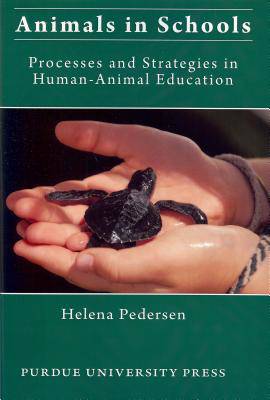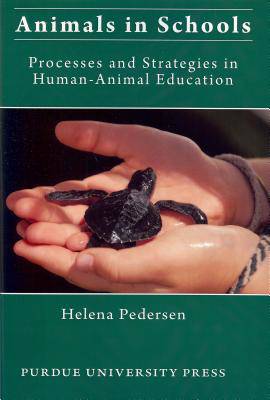
- Afhalen na 1 uur in een winkel met voorraad
- Gratis thuislevering in België vanaf € 30
- Ruim aanbod met 7 miljoen producten
- Afhalen na 1 uur in een winkel met voorraad
- Gratis thuislevering in België vanaf € 30
- Ruim aanbod met 7 miljoen producten
Zoeken
€ 31,95
+ 63 punten
Omschrijving
Animals in Schools explores important questions in the field of critical animal studies and education by close examination of a wide range of educational situations and classroom activities. How are human-animal relations expressed and discussed in school? How do teachers and students develop strategies to handle ethical conflicts arising from the ascribed position of animals as accessible to human control, use, and killing? How do schools deal with topics such as zoos, hunting, and meat consumption? These are questions that have profound implications for education and society. They are graphically described, discussed, and rendered problematic based on detailed ethnographic research and are analyzed by means of a synthesis of perspectives from critical theory, gender, and postcolonial thought. Animals in Schools makes human-animal relations a crucial issue for pedagogical theory and practice. In the various physical and social dimensions of the school environment, a diversity of social representations of animals are produced and reproduced. These representations tell stories about human-animal boundaries and identities and bring to the fore a complex set of questions about domination and subordination, normativity and deviance, rationality and empathy, as well as possibilities of resistance and change.
Specificaties
Betrokkenen
- Auteur(s):
- Uitgeverij:
Inhoud
- Aantal bladzijden:
- 146
- Taal:
- Engels
- Reeks:
Eigenschappen
- Productcode (EAN):
- 9781557535238
- Verschijningsdatum:
- 15/12/2009
- Uitvoering:
- Paperback
- Formaat:
- Trade paperback (VS)
- Afmetingen:
- 150 mm x 226 mm
- Gewicht:
- 249 g

Alleen bij Standaard Boekhandel
+ 63 punten op je klantenkaart van Standaard Boekhandel
Beoordelingen
We publiceren alleen reviews die voldoen aan de voorwaarden voor reviews. Bekijk onze voorwaarden voor reviews.











